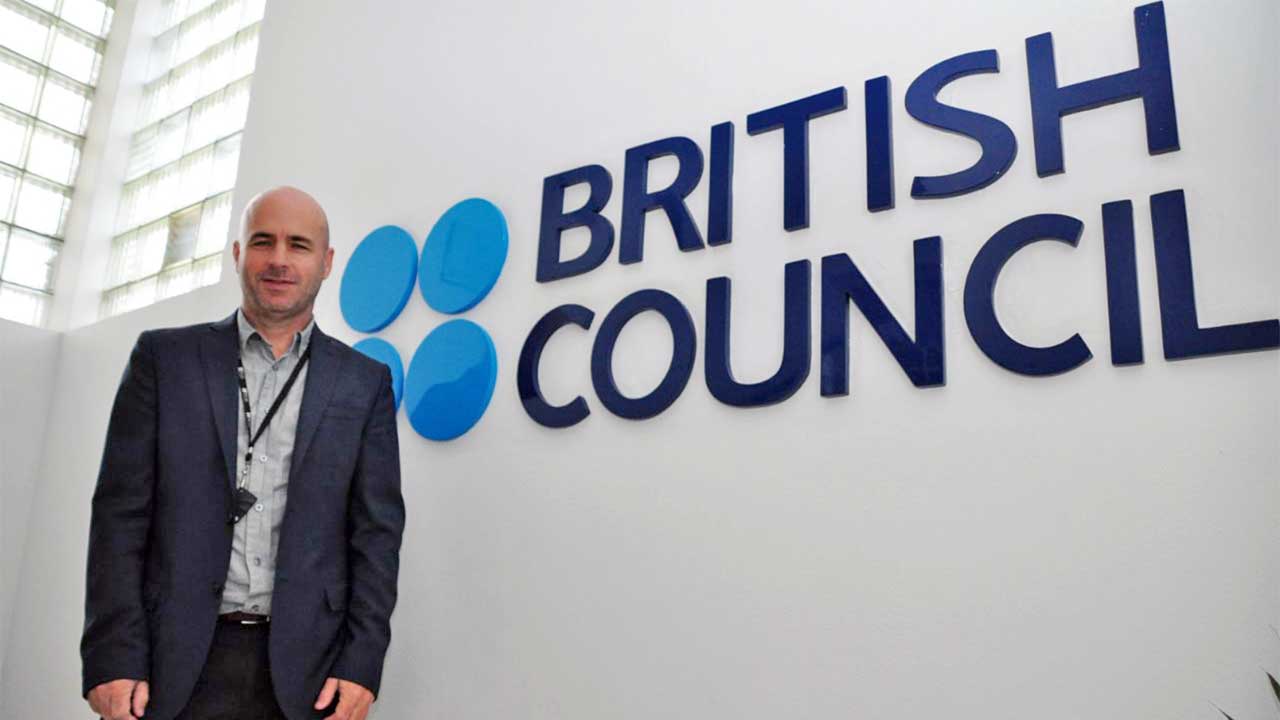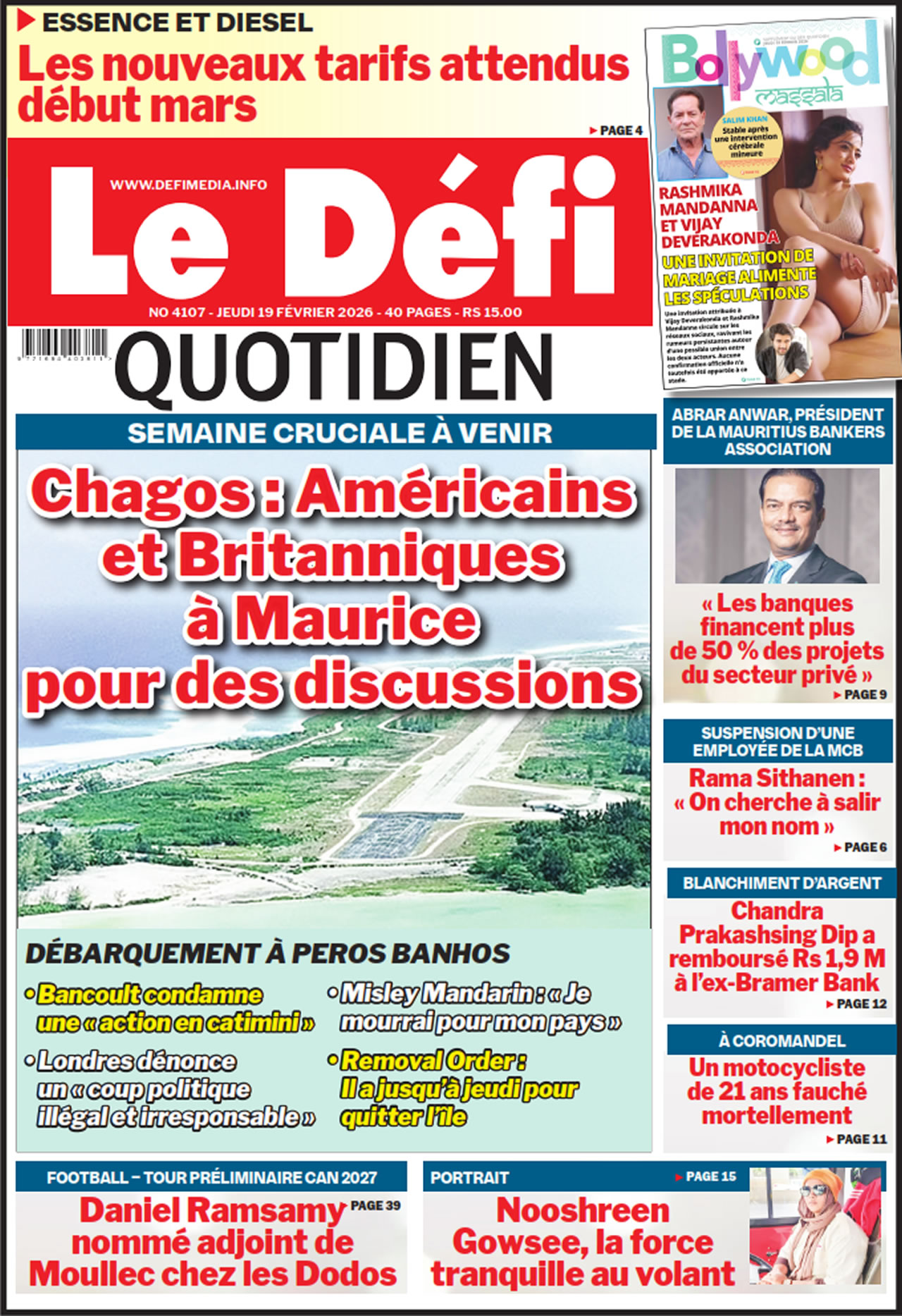
In the context of the British Council’s second edition of its Education UK Exhibition, the organisation’s Country Director, Mr Tris Bartlett, elaborates on the opportunities that exist in the United Kingdom and the aim of this education fair. He also highlights the relevance of the English language.
What is the aim of the Education UK Exhibition?
The British Council education fair aims to showcase higher education options and opportunities provided by British institutions based in both the United Kingdom and in Mauritius. Most UK universities rank highly in international university league tables. Another huge strength of studying in the UK is the diversity of its student population. The UK is a multi-cultural country and students from all over the world come to study there. One of the aspects graduates rate most highly about their UK study is the opportunity to share insights and ideas with people from diverse cultures and places. Through this, students broaden their perspectives and develop their world view. For people in a country such as Mauritius, which will increasingly rely on its linkages with, and understanding of people from all over the world, this world view is of huge benefit.
A focus of the fair is to provide high quality information to potential students and their parents. It is an opportunity for them to come and seek advice on career options and opportunities. Over and above learning about available courses, they can also find out how well suited the students may be to those courses, what are the employment prospects and the most promising career options. UK universities are also renowned for the quality and breadth of extra-curricular activities. The British Council is encouraging participating UK universities to deliver seminars during the fair. There will also be presentations on visa requirements and how to apply, student life in the UK and English language testing options.
What is the trend of Mauritians studying in the UK?
The UK has consistently remained the preferred destination for Mauritians seeking to study abroad. Of course, other countries are becoming increasingly attractive, so a challenge for the UK is to innovate and remain at the leading edge. Of course BREXIT has raised some questions in many people’s minds, but in reality the challenges facing the UK higher education sector are clearer now.
Do UK universities offer scholarships to Mauritian students?
Yes, many UK universities have scholarships dedicated to Mauritian students. The fair represents an opportunity to come and find out more about existing opportunities and how to get one.
What are the prospects for employment in the UK for Mauritian graduates?
Upto six months after completion of their course, international students are allowed to try and find a graduate level job in the UK and many choose this option. I’m hesitant to recommend this too boldly, because Mauritius greatly needs well qualified young people, particularly in fields such as the sciences and engineering, to help it to continue its rapid development and to continue to develop as a knowledge economy and an Indian Ocean hub. On the other hand, if young Mauritians can gain relevant employment experience in the UK for a year or two, that would greatly enhance their career prospects and the value to Mauritius upon their return.
For some years, we have witnessed a decline in the English language in Mauritius, what could be the underlying reasons?
It’s very difficult for me to have a full perspective on this as I have only been here for two years. Obviously, I talk to people about this frequently and I hear many plausible explanations. But some people also feel that the quality of spoken English remains very high. From my perspective, Mauritians do incredibly well to speak three languages and it is not surprising if the quality of one or more of those declines gradually. English is itself only a few hundred years old. Perhaps up until the time of Shakespeare, English may have been considered a creole language itself, adopting and adapting words from Latin, Greek, French, German and other languages, as populations from different countries settled in the British Isles. It could be that Mauritius is today witnessing a similar process. In a globalising world, where English is the prominent language of business and education, Mauritians need English more than they ever did in the past.
 How can this situation be improved?
How can this situation be improved?
I don’t think that there is one big thing that can be done, but perhaps several smaller things. It would be great for instance to see much more English programming on national television and radio. Also, in the past, we have worked with the Ministry of Education on English language support for teachers and this is something we would be keen to continue, particularly in the training of new teachers. The British Council and the English Speaking Union are planning a high level English language think tank, drawn from business and academic communities, government and civil society, to look at what the key issues with English are and to make recommendations for remedial actions.
What is the British Council doing to promote the English language?
Of course, we have our teaching centres in Grand Baie and Rose Hill and we work with hundreds of Mauritians, young and not so young, every week. The British Council is looking at ways for our teaching centres to reach more people, not just through classes but through activities and events. We also have online English learning materials that are free to access for anyone keen on self-study, or looking at ways of augmenting their existing studies. We run free to access online courses (MOOCS) several times a year. Indeed the British Council’s IELTS MOOC has had more students than any other MOOC in the world.
As I mentioned above, the British Council is working closely with partners such as the English Speaking Union and the Ministry of Education in activities to promote English. We have a range of activities such as the Young Journalists competition, which are also designed to encourage the development and use of the English language in school-age children. In 2017, we will introduce new initiatives as well. One of these will be FameLab, a project designed to promote science communication in English, whilst also showcasing the magic of science. We will also introduce a project called Future News Worldwide, where university students interested in journalism will be supported to communicate with others with similar interest around the world.
The British Council does a lot of English language testing at all levels, including through IELTS and the Cambridge Young Learner suite which we offer through schools and community groups. In the coming months, I hope we will be able to introduce an online test which will be a quick and low cost way to help people to work out their level of English competence and the appropriate level of study required for them to improve their competence and confidence in English speaking.
About Tris Bartlett
Mr Tris Bartlett, the British Council County Director in Mauritius has had a career in Cultural Relations and International Development spanning over 20 years, with extensive experience in Africa and Asia. Prior to joining the British Council in 2004, he worked in the NGO and University sectors, in the fields of education, enterprise development and conflict resolution.
 J'aime
J'aime














